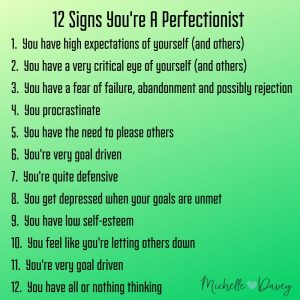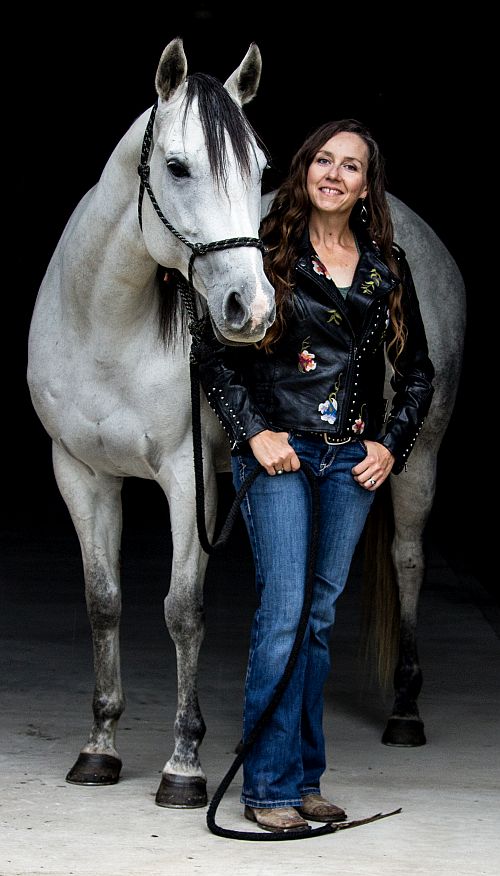Audio Version of Blog Post
I’ll either be Tough Love or Captain Obvious here, but I’m here to say – You are not perfect. I’m not perfect. Your horse is not perfect. So why do we try to be perfect? Why do we try and make our horses perfect?
Why do we enter the arena with the expectation to have the perfect ride or the perfect run?
Perfectionism is an unrealistic expectation. We know that but yet here we go again, trying to be perfect.
The conditioning to be and behave perfectly starts young. I also believe many of are born with the generational conditioning and desire to be perfect. We also pick up the subconscious beliefs of those around us when we’re babies, so if there is a perfectionist in the family, chances are high, there will be another down the line.
Because of this, it’s only natural that we carry this desire with us each and every day, and then put the pressure on our horses (and family and others) to behave perfectly. We have it, we think others should also carry the same desires. It can be really confusing for a perfectionist to deal with someone who is not. We often think: “why would you do that in such a half-assed way?” We just don’t get it.
Our parents and caregivers had an idea in their mind of what our perfect behavior is. Everyone will have been raised to a different standard and a different “box” (of appropriate and inappropriate behavior), but there is a standard we are supposed to live up to. Whether we were the “perfect baby” or not, our parents talked about our behavior and whether it was good and bad and were always trying to make us “better”.
The conditioning continued when we went to school. We were trained to work towards the perfect marks, the perfect test scores all while having perfect behavior in the classroom. All measurements determined by someone else but yet filling our subconscious mind with the belief that we should be perfect.
When we stepped out of the line of perfectionism “box” there was trouble to pay. We were scolded for spilling the cereal on the kitchen floor or reprimanded for not doing well enough on a test. There will be different levels of repercussions depending on the environment. Some of us who take pride and work hard to be perfect don’t need any punishment, we beat ourselves up inside enough for everyone.
You’re reading this from the perspective of a recovering perfectionist, I should remind you. Therefore the views may be quite different for someone who has no fear of being imperfect. This is just how I perceive things and someone else could see them differently.
Society sends out the vibe that it wants to see us as having a perfect life, the million dollar family, the perfect job, partner and so on. Who decided all this and what is “perfect” anyway? Depending on your community and tribe and subconscious beliefs, what is considered “perfect” will be different.
There is a lot of pressure to be perfect and that suggests perfect is a good thing. Perfect is not authentic. Because perfection is not possible.
Trying to be “perfect” (perfectionism) is really the fear of being imperfect. It’s not trying to be perfect at all, it’s just trying not to be wrong. It’s the fear of not being perfect.
So what if it was ok to be imperfect? For myself, I’m realizing it is ok to be imperfect. In fact, the only thing I’m perfect at it is being a mess. A perfectly imperfect mess. I am not perfect. I’m a human. My horse isn’t perfect, he’s a horse. Having the expectation of perfection will simply set me up to fail.
What if we focused on effort and try instead of perfection?
Rarely in barrel racing is the “perfect run” a fast run. And every record-setting run we could watch will always have a spot where “they could have been even faster”. Generally speaking, smooth is fast and efficient is fast. It’s not perfect that is fast (as in not taking extra steps).
In a judged horse event, rarely is a perfect score met. There’s always “something” that could have been better. Yet we have a tendency to desire to have a perfect run.
As a recovering perfectionist, I recognize how important it is to try and find the perfect path and to have my horse ride a perfect way, but I can not focus on this perfection. If I do, I’m left disappointed every damn time because I never achieve this level of perfection.
What I do to overcome my desire to be perfect is to remind myself I’m human. I make mistakes. My horse is a horse, she makes mistakes. I also don’t aim for perfection. I aim for effort and try and better than the last time. Even better than the last time can be a lot of pressure because we all have off days and it’s not always a direct line to awesome. There will be ups and downs.
Being aware of how detrimental perfectionism can be to my self-confidence has been big. I was aiming for something I could never be successful at. I could never be perfect. There is no such thing.
Now I’m not saying being “half-assed” is my new way of being and that’s what I suggest. But B minus work is better than aiming for an A plus and completely bombing it (or if you’re like me, not entering for fear you’re not going to be perfect). What if B- was good enough to win and you didn’t enter because you weren’t doing your A+ work yet? You’d miss out on a good time, right?
Some coaches and parents might cringe at my suggestion to aim for B- work, and counter that we need to practice perfect and then in competition not have the expectation that we should be perfect. And for someone who is not a perfectionist (either naturally or through conditioning), you’re probably right. But for someone who is already struggling with the sabotaging that perfectionism can cause, I think it would be more effective to focus on better than yesterday and try. They need to have some pressure taken off. And as a result, they will take it off their horse too. They’re already putting enough of their own pressure on as they naturally fear being imperfect.
Your horse understands you’re not perfect, he knows you’re a human after all. He knows humans make mistakes ALL THE TIME! But he does want you to remember he’s just a horse and he’s listening to you. So maybe instead of trying to be perfect (and being imperfect as a result), try “riding right for your horse” and riding him where he’s at right now. Stay present and stay out of judgment when you do something you wish you hadn’t, and then carry on to trying your best (without expecting it to be perfect).
Today I challenge you to release yourself from the conditioning of perfectionism. Allow that pressure to lift away and just be ok with being imperfect you. Allow your horse to be imperfectly perfect as well, and you’ll be surprised how “perfect” for you he really his.

